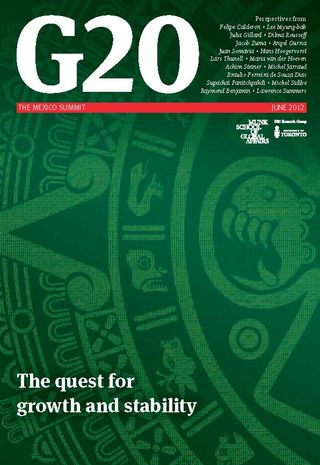?
Russia’s vision for G20 summitry
The G20 has proved that it can respond to crises. It has to live up to the expectations that it can prevent global risks, break dead locks other institutions responsible for resolving critical issues were unable to break. Challenging a plethora of skeptics G20 is now a long term process in motion. The G20 leaders’ decisions on the Mexican 2012 Presidency’s five priorities, which are broadly shared across the G20 members and beyond, are expected to advance global financial and economic stability; promote growth and jobs creation through structural reforms; make progress towards international financial institutions reform; strengthen financial regulation; enhance food security and mitigate commodity price volatility. The summit commitments and their implementation by the G20 and relevant international institutions will show how much the expectations held would prove to be the expectations met.
